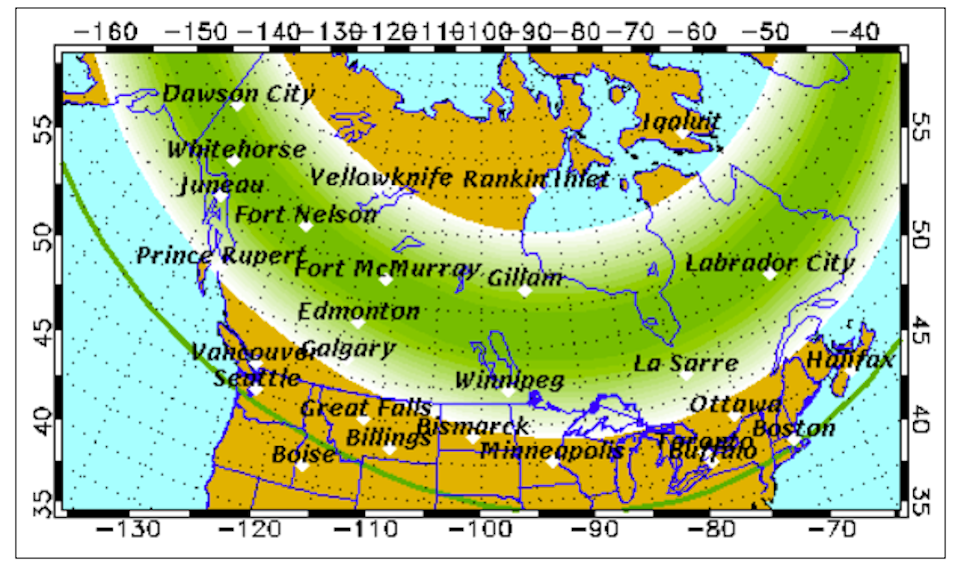Metro Vancouver residents have numerous chances to catch the Northern Lights locally this week, weather permitting.
The (NOAA)'s Space Weather Prediction Center issued an S1 (minor) solar radiation storm warning on Monday (March 28) that was associated with an M4 flare. No geomagnetic storms are expected in the upcoming three-day forecast, however.
There are possibilities for R1-R2 (Minor-Moderate) radio blackouts from March 28 to 30 "due primarily to potential flare activity from Region 2975," NOAA adds.
According to the (UAF), the northern lights may be viewable in local skies this weekend on March 28, March 31, April 1, and April 2.
The university's shows what regions the aurora's green glow will likely reach, as well as another area where there is less of a possibility. Additionally, there is a brief description below the map of the aurora activity on that particular day. You can switch to other days to see the forecast, too.
On March 28, the university expects highly active auroral displays will be visible overhead from Inuvik to Thunder Bay, Ontario and down to places south of the border including Seattle, Chicago, and Boston.
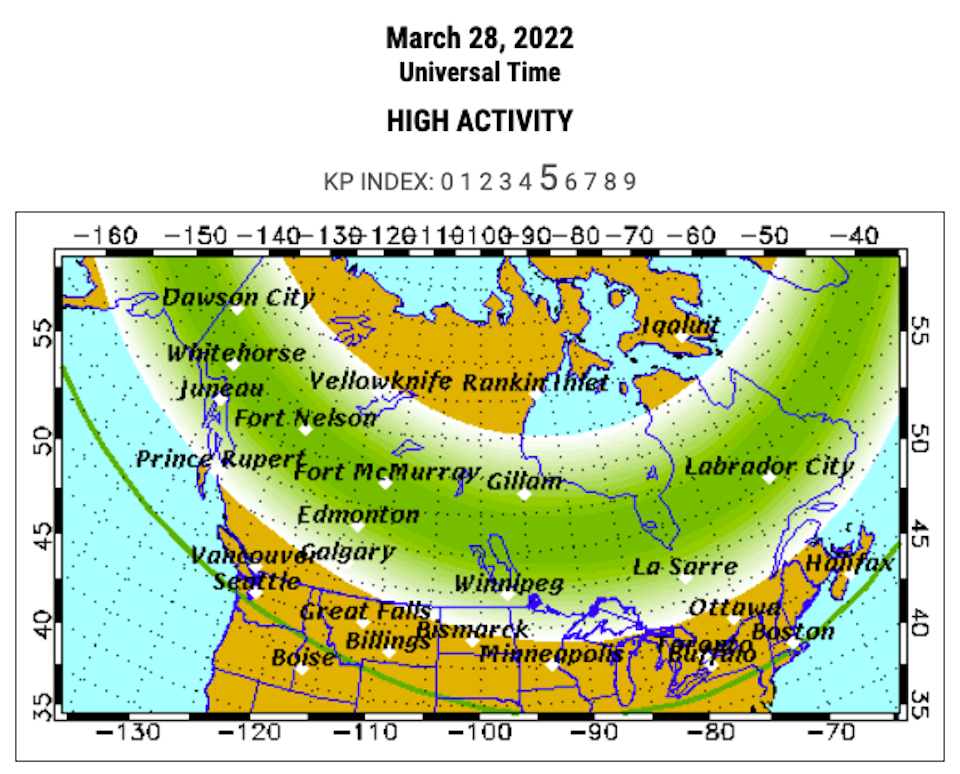
Auroral activity is also expected to be high on March 31, with possible viewing opportunities from "YInuvik, Yellowknife, Rankin and Iqaluit to Juneau, Edmonton, Winnipeg and Sept-Iles, and visible low on the horizon from Vancouver, Great Falls, Pierre, Madison, Lansing, Ottawa, Portland and St. Johns."
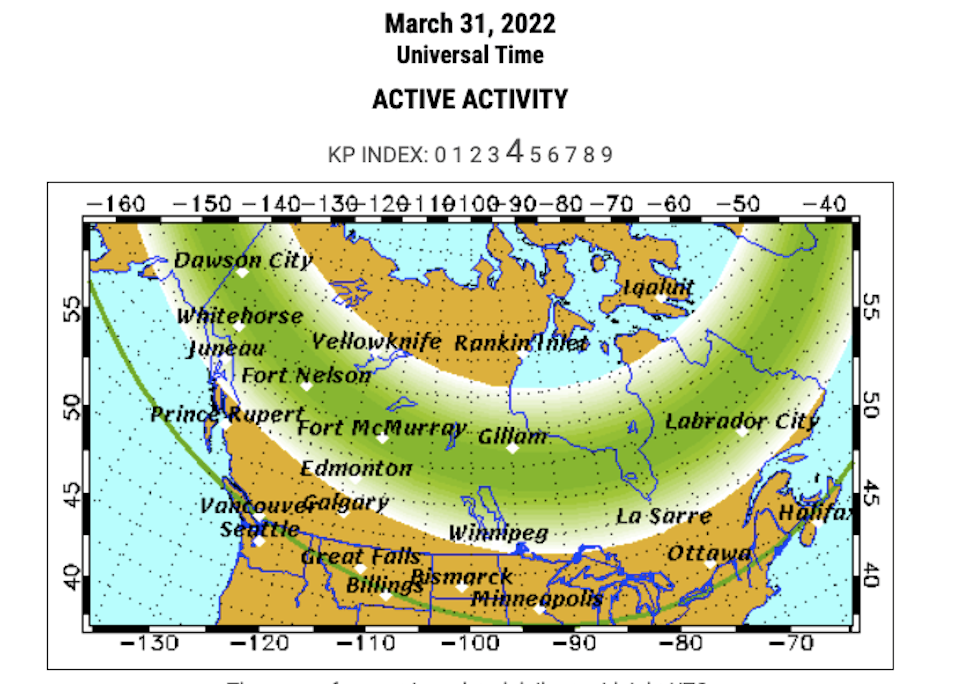
On April 1 and 2, the university expects highly active auroral displays will be visible overhead from Inuvik to Thunder Bay, Ontario and down to places south of the border including Seattle, Chicago, and Boston.
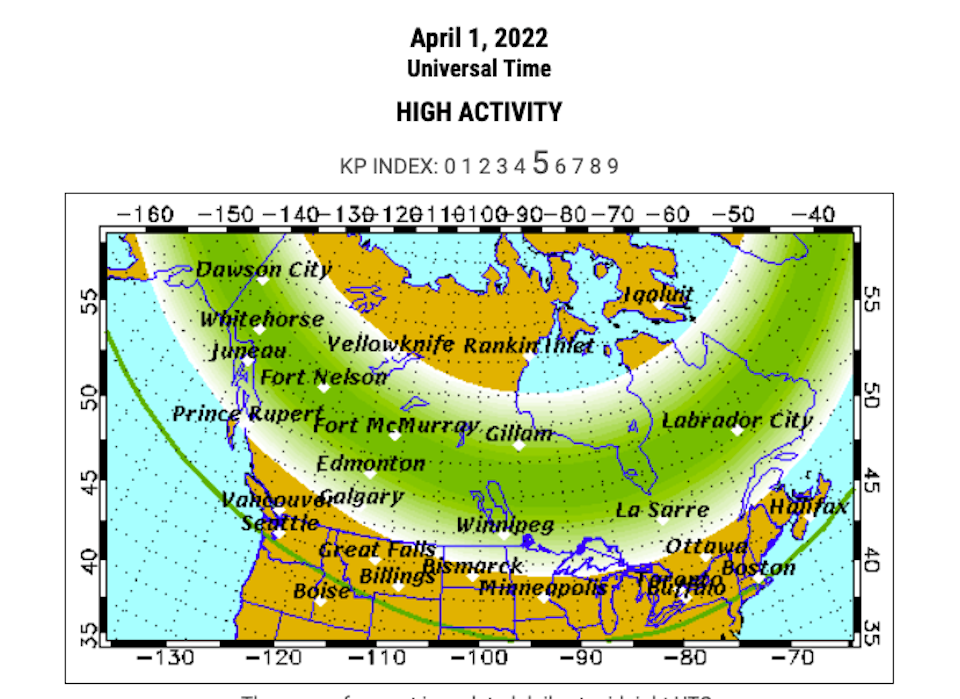
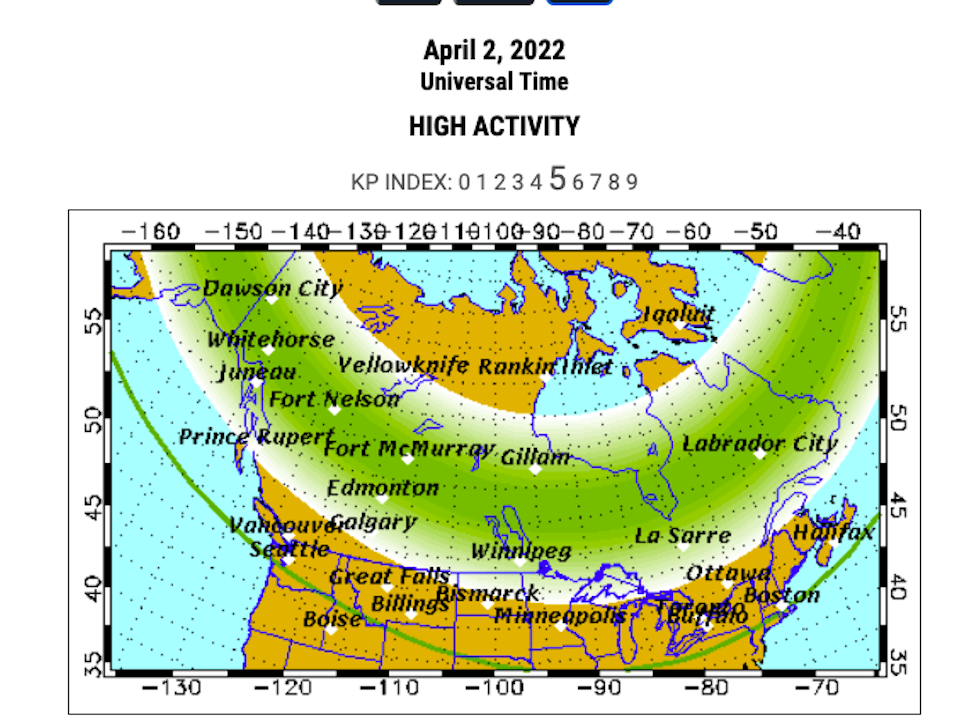
What is the best time of night to see aurora?
UAF recommends that you plan to be out for three or four hours around midnight. That said, the dancing lights are active throughout the night. Since clear sky and darkness are both essential to see aurora, the best time is dictated by the weather and by the sunrise and sunset times. The moon is also very bright and can make it more difficult to view the aurora, so lunar cycles should be taken into account.
Find out more information about when to see the vibrant display with the UAF's .
